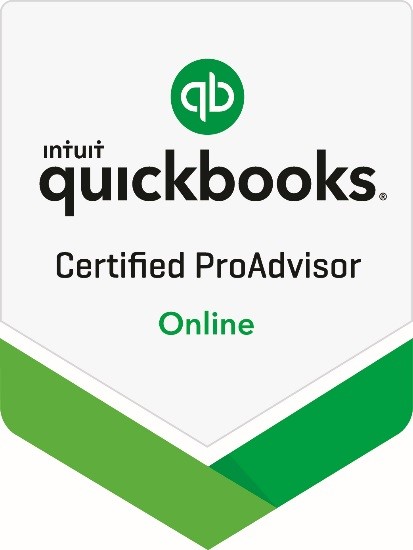Contact Us
Get in Touch
Have questions or need assistance? Contact us today to discuss your financial goals.
Subscribe to our newsletter to receive news, updates, and valuable tips.
Planning For Retirement: Frequently Asked Questions
Living Trusts: Frequently Asked Questions
What is a living trust?
A living trust is an entity that exists only on paper (similar to a corporation) but is legally capable of owning property. However, a live person called the trustee must be in charge of the property. Furthermore, you can be the trustee of your own living trust, keeping full control over all property legally owned by the trust.
There are many kinds of trusts. A living trust (also called a revocable trust, revocable living trust, or inter vivos trust) is simply one you create while you're alive rather than one created upon your death under the terms of your will.
Property held in trust that is actually "owned" by the trustees, subject to the rights of the beneficiaries. The trust itself doesn't own anything. All living trusts are designed to avoid probate. Some also help you save on estate taxes, while others let you set up long-term property management.
What is probate?
Probate is the legal process of paying the deceased's debts and distributing the estate to the rightful heirs. This process usually entails:
The appointment of an individual by the court to act as executor of the estate. Executors are sometimes referred to as "personal representatives." Most people name an executor as part of their will. If there is no will, the court appoints an executor, most often a spouse if the deceased is married.
Proving that the will is valid.
Informing creditors, heirs, and beneficiaries that the will is probated.
Disposing of the estate by the executor in accordance with the will or state law.
The executor named in the will must file a petition with the court after the death. There is a fee for the probate process. Probating a will may require legal assistance depending on the size and complexity of the probable assets.
Assets jointly owned by the deceased and others are not subject to probate. Proceeds from a life insurance policy or Individual Retirement Account (IRA) paid directly to a beneficiary are also not subject to probate.
Do I need a living trust?
A living trust is a useful estate and tax planning document that keeps your estate out of probate court. While some people may not need one, there are several reasons why it makes sense, such as having a beneficiary who is disabled, owning property in another state, or making it easier for your heirs to administer your estate after death.
How does a living trust avoid probate?
Property you transfer into a living trust before your death doesn't go through probate. The successor trustee - the person you appointed to handle the trust after your death - simply transfers ownership to the beneficiaries you named in the trust. In many cases, the whole process takes only a few weeks, and there are no lawyer or court fees to pay. The living trust ceases to exist when the property has all been transferred to the beneficiaries.
Is it expensive to create a living trust?
The cost of creating a living trust depends on what you want to achieve. The more complicated a living trust is, the more expensive it will be. Also important to note is that while the fees associated with creating a living will are paid upfront, a living trust saves you money and time by avoiding probate court.
Is a trust document ever made public, like a will?
A will becomes a matter of public record when submitted to a probate court, as do all the other documents associated with probate - inventories of the deceased person's assets and debts, for example. However, the terms of a living trust need not be made public.
Does a trust protect property from creditors?
Holding assets in a revocable trust does not shelter those assets from creditors. A creditor who wins a lawsuit against you can go after the trust property as if you still owned it in your name.
After your death, however, property in a living trust can be quickly and quietly distributed to the beneficiaries (unlike property that must go through probate). That complicates matters for creditors; by the time they find out about your death, your property may already be dispersed, and the creditors have no way of knowing exactly what you own (except for real estate, which is always a matter of public record). It may not be worth the creditor's time and effort to track down the property and demand that the new owners use it to pay your debts.
On the other hand, probate can offer protection from creditors. During probate, known creditors must be notified of the death and given a chance to file claims. If they miss the deadline to file, they're out of luck forever.
Do I need a trust if I'm young and healthy?
Probably not. At this stage in your life, your main estate planning goals are probably making sure that in the unlikely event of your premature death, your property is distributed how you want it to be and, if you have young children, that they are cared for. You don't need a trust to accomplish those ends; writing a will and perhaps buying some life insurance is sufficient.
Can a living trust save taxes?
A simple probate-avoidance living trust does not affect either income or estate taxes. More complicated living trusts, however, can greatly reduce your federal estate tax bill if you expect your estate to owe estate tax at your death.
Wills: Frequently Asked Questions
What happens if I die without a will?
If you don't make a will or use some other legal method to transfer your property when you die, state law will determine what happens to your property. (This process is called "intestate succession.") Your property will be distributed to your spouse and children or, if you have neither, to other relatives such as siblings or parents according to a statutory formula.
If no relatives are found to inherit your property, it will go into your state's coffers. More importantly however is that if you have minor children, in the absence of a will, a court will determine who will care for your young children and their property if the other parent is unavailable, unfit, or has died as well.
Can I just make a handwritten will if I don't have much property?
Handwritten wills, called "holographic" wills, are legal in 26 states. To be valid, a holographic will must be written, dated and signed in the handwriting of the person making the will. Some states allow will writers to use a fill-in-the-blanks form if the rest of the will is handwritten and the will is properly dated and signed.
If you have very little property, and you want to make just a few specific bequests, a holographic will is better than nothing, provided it's valid in your state. In general however, they're not recommended. Unlike regular wills, holographic wills are not usually witnessed, so if your will goes before a probate court, the court may be unusually strict when examining it to be sure it's legitimate. It's better to take a little extra time to write a will that will easily pass muster when the time comes.
Do I need to file my will with a court or in public records somewhere?
No. A will doesn't need to be recorded or filed with any government agency. Just keep your will in a safe, accessible place and be sure the person in charge of winding up your affairs (your executor) knows where it is.
Can I use my will to name somebody to care for my young children in case my spouse and I both die suddenly?
Yes. If both parents of a child die while the child is still a minor, another adult - that is, a "personal guardian" - must step in. You and the child's other parent (if there is one) can use your wills to name someone to be your child(ren)'s, guardian. To avert conflicts, each parent should name the same person. If a guardian is needed, a judge will appoint the person you named as guardian as long as he or she agrees that it is in the best interest of your children.
The personal guardian will be responsible for raising your children until they become legal adults, and you should have complete confidence in the person you name. Of course, you should ask the person if they are willing to accept the responsibility of raising your children should the need arise before you name them as a guardian in your will.
What happens to my will when I die?
After you die, your executor (the person you appointed in your will) is responsible for seeing that your wishes are carried out as directed by your will. He or she may hire an attorney to help wind up your affairs, especially if probate court proceedings are required.
What if someone challenges my will after I die?
Very few wills are ever challenged in court. When they are, it's usually by a close relative who feels somehow cheated out of his or her rightful share of the deceased person's property.
Generally speaking, only spouses are legally entitled to a share of your property. Your children aren't entitled to anything unless you unintentionally overlooked them in your will.
To get an entire will invalidated, someone must go to court and prove that it suffers from a fatal flaw: the signature was forged; you weren't of sound mind when you made the will or you were unduly influenced by someone.
What instructions should I give my survivors about funeral ceremonies and the disposition of my body?
Letting your survivors know your wishes saves them the difficulties of making these decisions at a painful time. Many family members and friends find that discussing these matters ahead of time provides great relief, especially if a person is elderly or in poor health and death is expected soon.
Planning some of these details in advance also helps save money. For many people, death goods and services cost more than anything they bought during their lives except homes and cars. Some wise comparison shopping in advance can help ensure that costs will be controlled or kept to a minimum.
If you die without leaving written instructions about your preferences, state law will determine who has the right to decide how your remains will be handled. In most states, the right - and the responsibility - to pay for the reasonable costs of disposing of remains rests with the following people (in the order shown):
Spouse
Children
Parents
The next of kin, or
A public administrator (who is appointed by a court).
Some states have laws that permit you to name a designated agent to carry out your wishes for disposing of your remains. These laws are especially useful for people who have never married, yet wish their significant other to carry out their wishes, or for those who are estranged from family members or know that one child in particular is more likely to carry out your wishes.
Disputes may arise if two or more people, the deceased person's children for example, share responsibility for a fundamental decision, such as whether the body of a parent should be buried or cremated. Such disputes can be avoided if you are willing to do some planning and to put your wishes in writing. In most cases the courts will respect your wishes.
What you choose to include is a personal matter, likely to be dictated by custom, religious preference or simply your own whims. A typical final arrangements document might include:
-The name of the mortuary or other institution that will handle burial or cremation
-Whether or not you wish to be embalmed
-The type of casket or container in which your remains will be buried or cremated, including whether you want it present at any after-death ceremony
-The details of any ceremony you want before the burial or cremation
-Who your pallbearers will be if you wish to have some
-How your remains will be transported to the cemetery and gravesite
-Where your remains will be buried, stored or scattered
-The details of any ceremony you want to accompany your burial, interment or scattering
-The details of any marker you want to show where your remains are buried or interred
Your Estate and Taxes: Frequently Asked Questions
What are variable annuities?
Variable annuity contracts are sold by insurance companies. Purchasers pay a premium of, for example, $10,000 for a single payment variable annuity or $50 a month for a periodic payment variable annuity. The insurance company deposits these premiums in an account that is invested in a portfolio of securities. The value of the portfolio goes up or down as the prices of its securities rise or fall.
After a specified period of time, which often coincides with the year the purchaser turns age 65, the assets are converted into annuity payments. Although the insurance company guarantees a minimum payment, these payments are variable, since they depend on the periodic performance of the underlying securities.
Almost all variable annuity contracts carry sales charges, administrative charges, and asset charges. The amounts differ from one contract to another and from one insurance company to another.
Fixed annuity contracts are not considered securities and are not regulated by the SEC (Securities and Exchange Commission).
How do annuities work?
An annuity, in essence, is insurance against "living too long." In contrast, traditional life insurance guards against "dying too soon." Briefly, here is how annuities function: An investor hands over funds to an insurance company. The insurer invests the funds. At the end of the annuity's term, the insurer pays the investor his or her investment plus the earnings. The amount paid at maturity may be a lump sum or an annuity, which is a set of periodic payments that are guaranteed as to amount and payment period.
Earnings that occur during the term of the annuity are tax-deferred and an investor is not taxed until the amounts are paid out. Because of the tax deferral, your funds have the chance to grow more quickly than they would in a taxable investment.
Should I invest in annuities?
There are two reasons to use an annuity as an investment vehicle:
You want to save money for a long-range goal, and/or
You want a guaranteed stream of income for a certain period of time.
Annuities lend themselves well to funding retirement, and, in certain cases, education costs.
One negative aspect of an annuity is that you cannot get to your money during the growth period without incurring taxes and penalties. The tax code imposes a 10 percent premature withdrawal penalty on money taken out of a tax-deferred annuity before age 59-1/2, and insurers impose penalties on withdrawals made before the term of the annuity is up. The insurers' penalties are termed "surrender charges," and they usually apply for the first seven years of the annuity contract.
These penalties lead to a de facto restriction on the use of annuities as an investment. It really only makes sense to put your money in an annuity if you can leave it there for at least ten years, and only when the withdrawals are scheduled to occur after age 59-1/2. This is why annuities work well mostly for retirement needs, or for education funding in cases where the depositor will be at least 59-1/2 when withdrawals begin.
Annuities can also be effective in funding education costs where the annuity is held in the child's name under the provisions of the Uniform Gifts to Minors Act. The child would then pay tax on the earnings when the time came for withdrawals. A major drawback to this planning technique is that the child is free to use the money for any purpose, not just education costs.
If an investment adviser recommends a tax-deferred variable annuity, should you invest it? Or would a regular taxable investment be better?
Generally, you should be aware that tax-deferred annuities very often yield less than regular investments. They have higher expenses than regular investments, and these expenses eat into your returns. On the plus side, the annuity provides a death benefit. You should also be aware that there may be a commission on the product an investment adviser may be entitled to a commission on the product he or she is recommending.
Should a retiree purchase an immediate annuity?
At first glance, the immediate annuity would seem to make sense for retirees with lump-sum distributions from retirement plans. After all, an initial lump-sum premium can be converted into a series of monthly, quarterly or yearly payments, representing a portion of principal plus interest, and guaranteed to last for life. The portion of the periodic payout that is a return of principal is excluded from taxable income.
However, there are risks. For one thing, when you lock yourself into a lifetime of level payments, you aren't guarding against inflation. You are also gambling that you will live long enough to get your money back. Thus, if you buy a $150,000 annuity and die after collecting only $60,000, the insurer often gets to keep the rest. Unlike other investments, the balance doesn't go to your heirs. Furthermore, since the interest rate is fixed by the insurer when you buy it, you are locking into today's low rates.
You can hedge your bets by opting for what's called a "certain period," which, in the event of your death, guarantees payment for some years to your beneficiaries. There are also "joint-and-survivor" options, which pay your spouse for the remainder of his or her life after you die, or a "refund" feature, in which a portion of the remaining principal is resumed to your beneficiaries.
Some plans offer quasi-inflation adjusted payments. One company offers a guaranteed increase in payments of 10 percent at three-year intervals for the first 15 years. Payments are then subject to an annual cost-of-living adjustment, with a 3 percent maximum. However, for these enhancements to apply, you will have to settle for much lower monthly payments than the simple version.
A few companies have introduced immediate annuities that offer potentially higher returns in return for some market risk. These "variable, immediate annuities" convert an initial premium into a lifetime income; however, they tie the monthly payments to the returns on a basket of mutual funds.
If you want a comfortable retirement income, your best bet is a balanced portfolio of mutual funds. If you want to guarantee that you will not outlive your money, you can plan your withdrawals over a longer time horizon.
How do life annuities differ from life insurance?
While traditional life insurance guards against "dying too soon," an annuity, in essence, can be used as insurance against "living too long." With an annuity, you will receive in return a series of periodic payments that are guaranteed as to amount and payment period. Thus, if you choose to take the annuity payments over your lifetime (there are many other options), you will have a guaranteed source of "income" until your death.
If you "die too soon" (that is, you don't outlive your life expectancy), you will get back from the insurer far less than you paid in. On the other hand, if you "live too long" and outlive your life expectancy you may get back far more than the cost of your annuity--along with the resultant earnings. By comparison, if you put your funds into a traditional investment, you may run out of funds before your death.
What's the down side to buying an annuity?
You cannot get to your money during the growth period without incurring taxes and penalties. The tax code imposes a 10 percent premature-withdrawal penalty on money taken out of a tax-deferred annuity before age 59-1/2 and insurers impose penalties on withdrawals made before the term of the annuity is up. The insurers' penalties are termed "surrender charges," and they usually apply for the first seven years of the annuity contract.
What types of annuities are available?
You can purchase a single-premium annuity, in which the investment is made all at once (perhaps using a lump sum from a retirement plan payout).
With the flexible-premium annuity, the annuity is funded with a series of payments. The first payment can be quite small.
The immediate annuity starts payments right after the annuity is funded. It is usually funded with a single premium, and is usually purchased by retirees with funds they have accumulated for retirement.
With a deferred annuity, payouts begin many years after the annuity contract is issued. Deferred annuities are used as long-term investment vehicles by retirees and non-retirees alike. They are used in tax-deferred retirement plans and as individual tax-sheltered annuity investments, and may be funded with a single or flexible premium.
With a fixed annuity contract, the insurance company puts your funds into conservative, fixed income investments such as bonds. Your principal is guaranteed, and the insurance company gives you an interest rate that is guaranteed for a certain minimum period--from a month to a year, or more. A fixed annuity contract is similar to a CD or a money market fund, depending on length of the period during which interest is guaranteed, and is considered a low risk investment vehicle.
This guaranteed interest rate is adjusted upwards or downwards at the end of the guarantee period.
All fixed annuities also guarantee you a certain minimum rate of interest of 3 to 5 percent for the entirety of the contract.
The fixed annuity is a good annuity choice for investors with a low risk tolerance and a short-term investing time horizon. The growth that will occur will be relatively low. In times of falling interest rates, fixed annuity investors benefit, while in times of rising interest rates they do not.
The variable annuity, which is considered to carry with it higher risks than the fixed annuity (about the same risk level as a mutual fund investment) gives you the ability to choose how to allocate your money among several different managed funds. There are usually three types of funds: stocks, bonds, and cash-equivalents. Unlike the fixed annuity, there are no guarantees of principal or interest. However, the variable annuity does benefit from tax deferral on the earnings.
You can switch your allocations from time to time for a small fee or sometimes for free.
The variable annuity is a good annuity choice for investors with a moderate to high risk tolerance and a long-term investing time horizon.
Today, insurers make available annuities that combine both fixed and variable features.
What are my options for collecting my annuity?
When it's time to begin taking withdrawals from your deferred annuity, you have several choices. Most people choose a monthly annuity-type payment, although a lump sum withdrawal is also possible. The size of your monthly payment depends on several factors including:
The size of the amount in your annuity contract
Whether there are minimum required payments
The annuitant's life expectancy
Whether payments continue after the annuitant's death
Summaries of the most common forms of payment (settlement options) are listed below. Keep in mind that once you have chosen a payment option, you cannot change your mind.
Fixed Amount gives you a fixed monthly amount (chosen by you) that continues until your annuity is used up. The risk of using this option is that you may live longer than your money lasts. If you die before your annuity is exhausted, your beneficiary gets the rest.
Fixed Period pays you a fixed amount over the time period you choose. For example, you might choose to have the annuity paid out over ten years. If you are seeking retirement income before some other benefits start, this may be a good option. If you die before the period is up, your beneficiary gets the remaining amount.
Lifetime or Straight Life payments continue until you die. There are no payments to survivors. The life annuity gives you the highest monthly benefit of the options listed here. The risk is that you will die early, thus leaving the insurance company with some of your funds.
Life with Period Certain gives you payments as long as you live (as does the life annuity) but with a minimum period during which you or your beneficiary will receive payments, even if you die earlier than expected. The longer the guarantee period is, the lower the monthly benefit will be.
Installment-Refund pays you as long as you live and guarantees that, should you die early, whatever is left of your original investment will be paid to a beneficiary.
Joint and Survivor. In one joint and survivor option, monthly payments are made during the annuitants' joint lives, with the same or a lesser amount paid to whoever is the survivor. In the option typically used for retired employees, monthly payments are made to the retired employee, with the same or a lesser amount to the employee's surviving spouse or other beneficiary. In this case, the spouse's (or other co-annuitant's) death before the employee won't affect what the survivor employee collects. The amount of the monthly payments depends on the annuitants' ages and whether the survivor's payment is to be 100 percent of the joint amount or some lesser percentage.
What's the tax on payouts from a qualified plan or IRA annuity?
A tax-qualified annuity is one used to fund a qualified retirement plan, such as an IRA, Keogh plan, 401(k) plan, SEP (Simplified Employee Pension), or some other retirement plan.
Any nondeductible or after-tax amount you put into the plan is not subject to income tax when withdrawn
The earnings on your investment are not taxed until withdrawal.
If you withdraw money before the age of 59 1/2, you may have to pay a 10 percent penalty on the amount withdrawn in addition to the regular income tax. One of the exceptions to the 10 percent penalty is for taking the annuity out in equal periodic payments over the rest of your life.
Once you reach the age after which retirement plan required minimum distributions (RMDs) must begin (age 73 for 2024 through 2032), you will have to start taking withdrawals in certain minimum amounts specified by the tax law (with exceptions for Roth accounts and certain other retirement accounts of employees still working).
Is it a good idea to buy annuities for my IRA or qualified plan?
Though this is sometimes done, no tax advantage is gained by putting annuities in such a plan since qualified plans and IRAs as well as annuities are tax-deferred. It might be better, depending on your situation, to put other investments such as mutual funds in IRAs and qualified retirement plans, and hold annuities in your individual account.
How will my annuity payouts be taxed?
Payouts are taxed differently for qualified and non-qualified plans. These differences are summarized below.
Qualified and Non-Qualified Annuities
A tax-qualified annuity is one used to fund a qualified retirement plan, such as an IRA, Keogh plan, 401(k) plan, SEP (Simplified Employee Pension), or some other retirement plan. The tax-qualified annuity, when used as a retirement savings vehicle, is entitled to all of the tax benefits-and penalties--that Congress saw fit to attach to such plans.
The tax benefits are:
The amount you put into the plan is not subject to income tax, and/or
The earnings on your investment are not taxed until withdrawal.
A non-qualified annuity, on the other hand, is purchased with after-tax dollars. You still get the benefit of tax deferral on the earnings.
Tax Rules for Qualified Annuities
When you withdraw money from a qualified plan annuity that was funded with pre-tax dollars, you must pay income tax on the entire amount withdrawn.
Once you reach the age after which retirement plan required minimum distributions (RMDs) must begin (age 73 for 2024 through 2032), you will have to start taking withdrawals, in certain minimum amounts specified by the tax law.
Tax Rules for Non-Qualified Annuities
With a non-qualified plan annuity that was funded with after-tax dollars, you pay tax only on the part of the withdrawal that represents earnings on your original investment.
If you make a withdrawal before the age of 59-1/2, you will pay the 10 percent penalty only on the portion of the withdrawal that represents earnings.
With a non-qualified annuity, you are not subject to RMDs after age 73.
What tax must my beneficiaries or heirs pay if my annuity continues after my death?
Taxes may apply to your beneficiary (the person you designate to take further payments) or your heirs (your estate or those who take through the estate if you didn't designate a beneficiary).
Income tax. Annuity payments collected by your beneficiaries or heirs are subject to tax on the same principles that would apply to payments collected by you.
Exception: There's no 10 percent penalty on withdrawal under age 59-1/2 regardless of the recipient's age, or your age at death.
Estate tax. The present value at your death of the remaining annuity payments is an asset of your estate and subject to estate tax with other estate assets. Annuities passing to your surviving spouse or to charity would escape this tax.
How should I shop for an annuity?
Check Out The Insurer. Make sure that the insurance company offering it is financially sound. Annuity investments are not federally guaranteed, so the soundness of the insurance company is the only assurance you can rely on. Several services rate insurance companies.
Compare Contracts. For immediate annuities: Compare the settlement options. For each $1,000 invested, how much of a monthly payout will you get? Consider the interest rate and any penalties and charges.
Deferred annuities. Compare the rate, the length of guarantee period, and a five-year history of rates paid on the contract, not just the interest rates.
Variable annuities. Check out the past performance of the funds involved.
If a particular fund has a great track record, ascertain whether the same management is still in place. Although past performance is no guarantee, consistent management will grant you better odds.
Is it better to take an annuity or a lump-sum distribution?
As in so many areas of retirement planning, that depends upon your particular needs and circumstances.
An annuity preserves the tax shelter for funds not yet paid out as annuity income, continuing to grow tax-free to fund future payouts.
A lump sum withdrawal may be preferable for those in questionable health.
Consider an annuity with a "refund feature" that guarantees a fixed sum to your heirs should you die earlier than expected.
\What is a joint and survivor annuity?
A joint and survivor annuity pays a certain annuity during your life and half that amount (it could be more) to your surviving spouse for life.
In almost all cases, the annual amount you will get under a joint and survivor annuity will be less than you would get under an annuity on your life alone.
Can I change from a joint and survivor annuity if it doesn't meet my needs?
Joint and survivor annuities are almost always required in pension plans, and sometimes in other plans. But you and your spouse can still agree to some other form.
Chief reasons for such agreement are so that your child or other family member can share in the income, or to take a lump sum distribution, or to take a larger annual amount over the participant's life alone.
Schedule your call today at
(866) 721-5356



Ready to Keep More of What You Earn?
Start With a Free Tax Savings Assessment
Discover how much you could be saving with proper tax strategy. Our complimentary assessment typically uncovers $15,000-$50,000 in missed deductions and savings opportunities.

Subscribe to our Mailing List
And that's just a peek at what we offer. Get more marketing tips straight to your inbox.
Contact Us
(866) 721-5356
100 South Bedford Road, Suite 340, Mt. Kisco, New York 10549
© 2024 Chase Eason & Associates, Inc.
100 South Bedford Road, Suite 340, Mt. Kisco, New York 10549






















